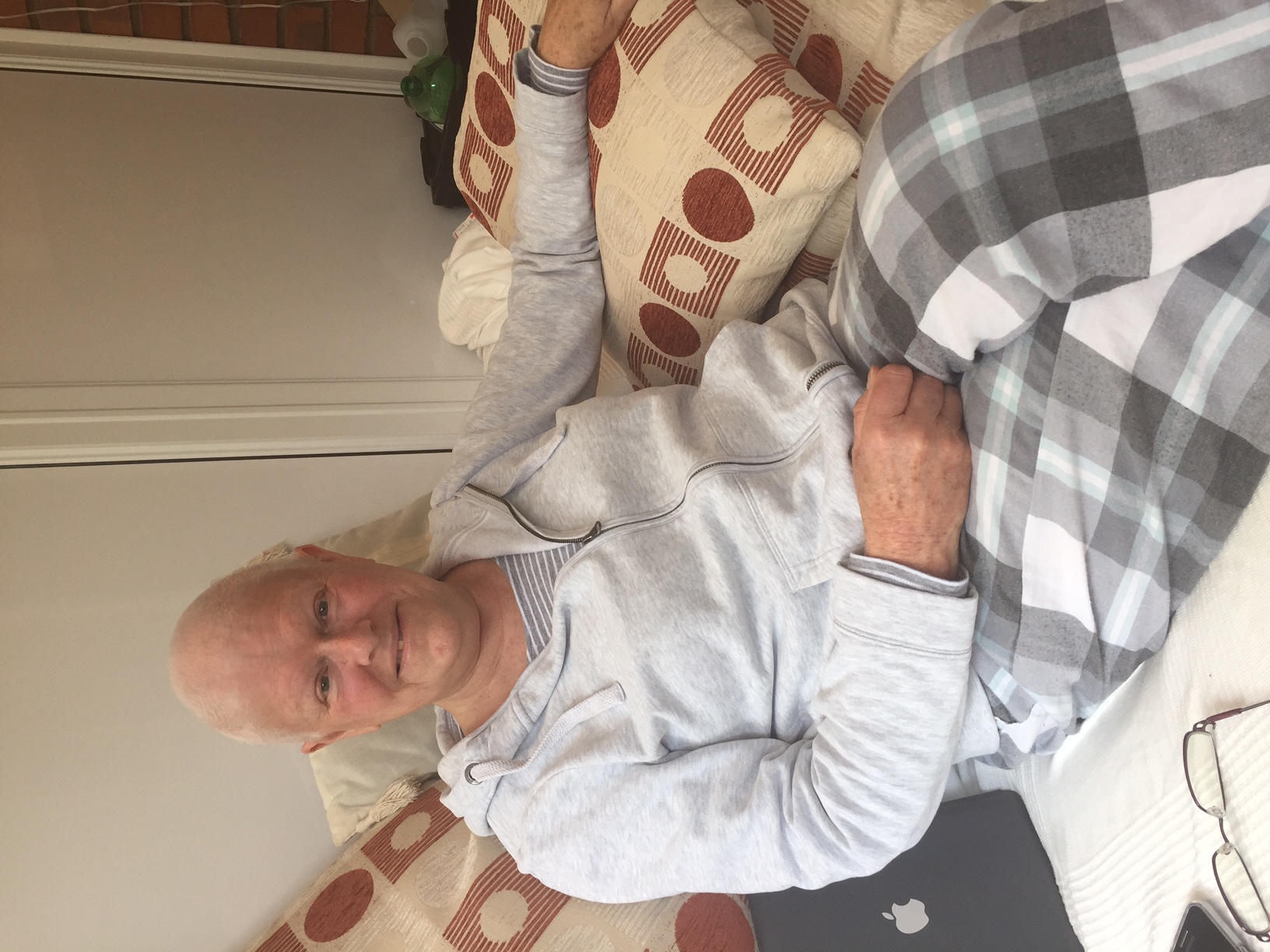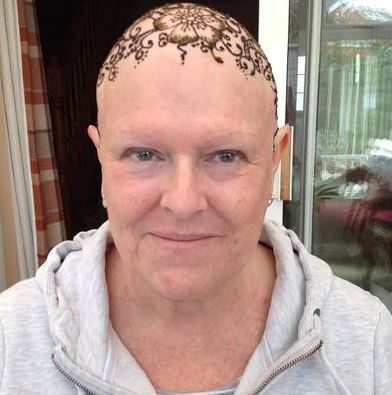Specialist breast cancer nurse helps patients through complex journey
Now they can phone me and say, ‘I can’t remember a word of what I was told’ and I can talk them through it. They now have one person they can contact
Specialist breast cancer nurse helps patients through complex journey
Women in Worcestershire with secondary breast cancer are benefiting from a new specialist nurse who helps them through the complex journey of treatments and emotions.
In the first six months since she started her new role, Lynne Colbourne, has supported 63 women from Worcester, Droitwich, Evesham, Malvern, Pershore and surrounding areas. The experienced chemotherapy, oncology and cancer nurse specialist is employed in this innovative role by St Richard’s Hospice to work in partnership with Worcestershire Royal Hospital. (WRH)
Lynne can often be involved from the first meeting when a woman is given the diagnosis of secondary breast cancer and says people react very differently.
“Patients are told very honestly that the cancer will never go away totally but there are treatments that can be offered to try and shrink or contain it and stop it spreading to other areas and improve symptoms so they are not getting any pain. Some treat it as a sword of Damocles, and others say right, give me the treatment I’m going to go out and live. “
Lynne continued: “Some people go on to live for many years. For example, if someone has cancer which has spread to the bones and they have treatment that contains it, improves the symptoms and they are not getting pain then they can go to work, look after the children and go on holiday if that’s what they want. At some point the cancer may get worse again, and they are offered more treatment. “
“Often a first major worry for someone is how they will pay the bills and mortgage or concerns their employer will make them redundant. I can help them through that maze by connecting them to the Citizen’s Advice Bureau worker at St Richard’s, who helps with issues on finance and benefits. I also link them with the hospice physiotherapists and occupational therapists, our family support team for counselling and social work and any other services which I think will benefit them.”
Lynne meets patients on wards in the Worcester Royal and also as outpatients there. “I introduce myself and talk about my role and start getting to know them and their needs so I can be a key link. I think that’s the main difference for patients since I have taken on the role. Previously at diagnosis appointments they wouldn’t have had a nurse specialist with them when they hear results. Now they can phone me and say, ‘I can’t remember a word of what I was told’ and I can talk them through it. They now have one person they can contact rather than not knowing where to start. I might not always have the answers but I will try and find someone who might. “
Lynne will sometimes share a patient’s care with the community nurse specialists at St Richard’s Hospice who visit people in their own homes or elsewhere, making best use of areas of expertise.
She describes her service as giving patients the chance to dip in and out. “When they have been newly diagnosed patients often need a lot of input but then, as symptoms and emotions get back on an even keel, we can pull back. They know where we are if they need us: I touch base at clinics and if they need us more intensely again then I step back in. It’s very much up to the patient in how much input they want. “
“Although their illness is life-limiting the time scales over which we will see patients can be very wide. We might see a patient treated for primary breast cancer, return with secondary cancer six months later, and others 15 or 20 years down the line. Treatments have advanced so much there is often something to offer. “
Lynne says lots of women want advice on issues such as weight gain, exercise, menopausal symptoms and nutrition, all of which she, or other hospice team members, are able to help with.
She says that for some people, hearing the very word hospice makes them go white with fear.
“It can be a big issue to get across. I will say look, I know that people think hospice means death or hospice means end of life but I’m a chemo nurse and oncology nurse it doesn’t mean anything has changed from ten minutes ago to now. It’s very much about wellness, survivorship and rehabilitation.”
“There are, of course, some times when we have discussions about stopping treatments when they are no longer effective. Hopefully by then we have built up a trusting and caring relationship with the patient and the family and we can support them to enjoy life to their maximum ability, encompass them with care and ensure all those who die do so with dignity in a place chosen by them, surrounded by people important to them.”
Dr Chris Price, Consultant Medical Oncologist with Worcestershire Acute Hospitals NHS Trust
explained, “Treatments for breast cancer have improved dramatically over the past 10 years or so, so that for some women, even with extensive spread of their disease which can’t be eliminated, life can be lived and enjoyed for several years while their cancer is contained. However this will often involve changes to goals and expectations. There are likely to be frequent hospital visits for treatment and clinic consultations to review symptoms and test results. There are likely to be highs and low points and times of anxiety or crisis. Women often need a point of contact for individual support, information and advice to help them understand what is going on and find a way forward that is right for them. Breast cancer services throughout the UK now increasingly recognise the key role of the Advanced Breast Cancer Clinical Nurse Specialist, who can significantly enhance the quality of care and improve the experience of women going through this difficult journey. “
He added, “In Worcestershire we are extremely fortunate to have Lynne Colbourne working with us; she is a very experienced cancer nurse who has adapted to her new role brilliantly, providing a bridge between the hospital and the well-established support services provided by St Richard’s Hospice. As well as giving information and advice, Lynne is a very real practical support and helps patients who attend my clinic in innumerable ways, often telephoning them before or after clinic, spending time with them after difficult consultations, liaising with their families or chasing scan appointments and results. She is a genuine friend and ally and is always rooting for her patients. She is a victim of her own success; we wonder how we managed before she joined our team and already we need two of her.”
“Here to help, no problem is too small”
One patient who has benefited from Lynne’s support is Bridget Gough, 66, a retired primary school teacher from Upton upon Severn.
Lynne was at the meeting when Bridget was told by her consultant that her previous breast cancer had returned. She heard that her illness was life-limiting but could be treated, although it may come back at some point in the future.
“Having Lynne is brilliant. She’s the best thing,” said Bridget. “Lynne’s always there at my appointments with Chris Price, the consultant. She’s knows the ins and outs, she’s got access to my notes and she remembers everything that’s said. “
“I can contact her anytime when I’m worried. One time I felt really poorly and she arranged for me to have an xray and see the consultant within 24 hours. I wouldn’t have been able to do that.
“No problem is too small. She treats me as if I’m the only one with cancer. Dr Price and Lynne never rush me; they always have time and are very supportive. I look forward to seeing them as they are looking after me. “
Bridget has recently been told that following six chemotherapy sessions she has no cancer cells left in her body.
“I know this is on-going. But I don’t panic about anything. It could come back next year or in 12 years or more. I’m 66 and it doesn’t frighten me. I’m lucky I don’t have any other underlying health conditions which might make the treatments more complicated. But the children find it hard to think of me not being here.”
Bridget is full of praise for the support Lynne has given her three adult children. “They can talk, email or phone her whenever they want and I’ve told Lynne she can tell them anything they want to know about my condition. They’ve also been offered counselling and St Richard’s even arranged for one of the children to see someone at her local hospice elsewhere in the country. They really go the extra mile,” said Bridget. “We are so lucky to have St Richard’s here on our doorstep.”
Lynne was a great support when Bridget decided to have her head hennaed after she had lost her hair following chemotherapy treatment. After talking to local henna artist Yvette Jones, Bridget chose to ‘celebrate her baldness’ by having an intricate design temporarily tattooed on her head.
She had her head hennaed three times but her hair is now growing back since the chemotherapy has finished. “I’m very pleased I did it and had lots of great complements from people. It was much nicer for me than wearing a headscarf and I’d much rather lose my hair than my life.”
In brief
Facts about secondary breast cancer:
Of patients with early stage breast cancer up to 1/3rd will develop Secondary Breast Cancer
Advances in management continue to extend survival
Median survival time for Secondary Breast Cancer is now 3 years but it is not unusual for patients to live for more than 10 years
Secondary Breast Cancer is like a chronic disease
It is the 2nd most frequent cause of cancer death
The average age of Lynne’s patients who have previously been treated for breast cancer and developed secondary cancer is 63 years old.
The average age of her patients diagnosed at first diagnosis with metastatic breast cancer is 59 years.
It is estimated that there are currently approximately 100,000 women living with secondary breast cancer in the UK. As Worcestershire represents approximately 1% of both incident breast cancer diagnoses and breast cancer deaths in the UK (NCIN 2008-2010) the St Richard’s team has estimated that there are approximately 1,000 secondary breast cancer patients living in Worcestershire.
(Refs: Breast Cancer Care. Improving the care of people with metastatic BC. Final Report. November 2008
Pharm News. www.inpharm.com/news. Accessed June 2012)
Press release distributed by Pressat on behalf of St Richard's Hospice, on Tuesday 5 July, 2016. For more information subscribe and follow https://pressat.co.uk/
Cancer Hospice Breast Cancer Worcestershire Health
Published By

01905763963
hgriffee@strichards.org.uk
https://www.strichards.org.uk
Contact Communications Manager Helen Griffee on 01905 763963
Visit Newsroom
You just read:
Specialist breast cancer nurse helps patients through complex journey
News from this source:




